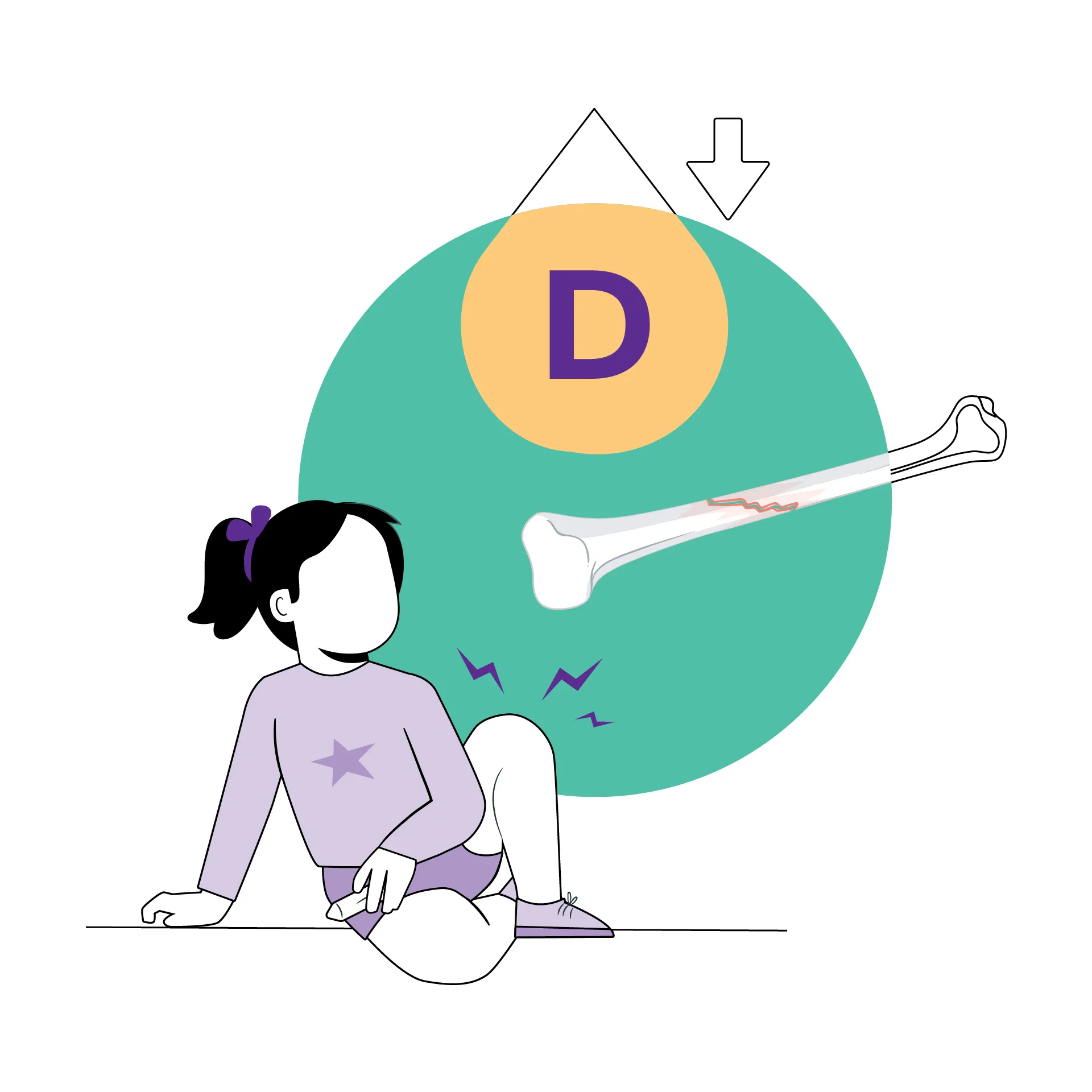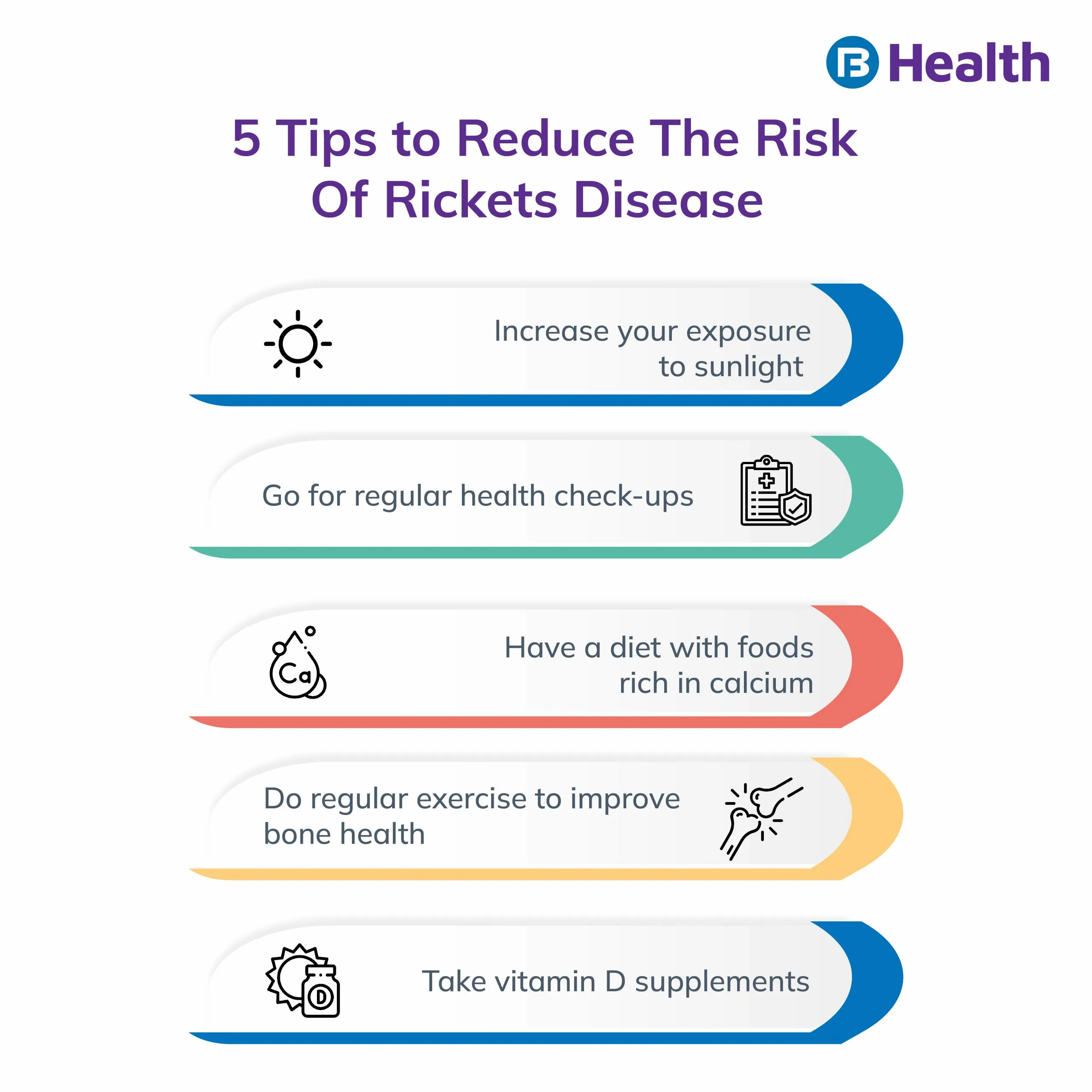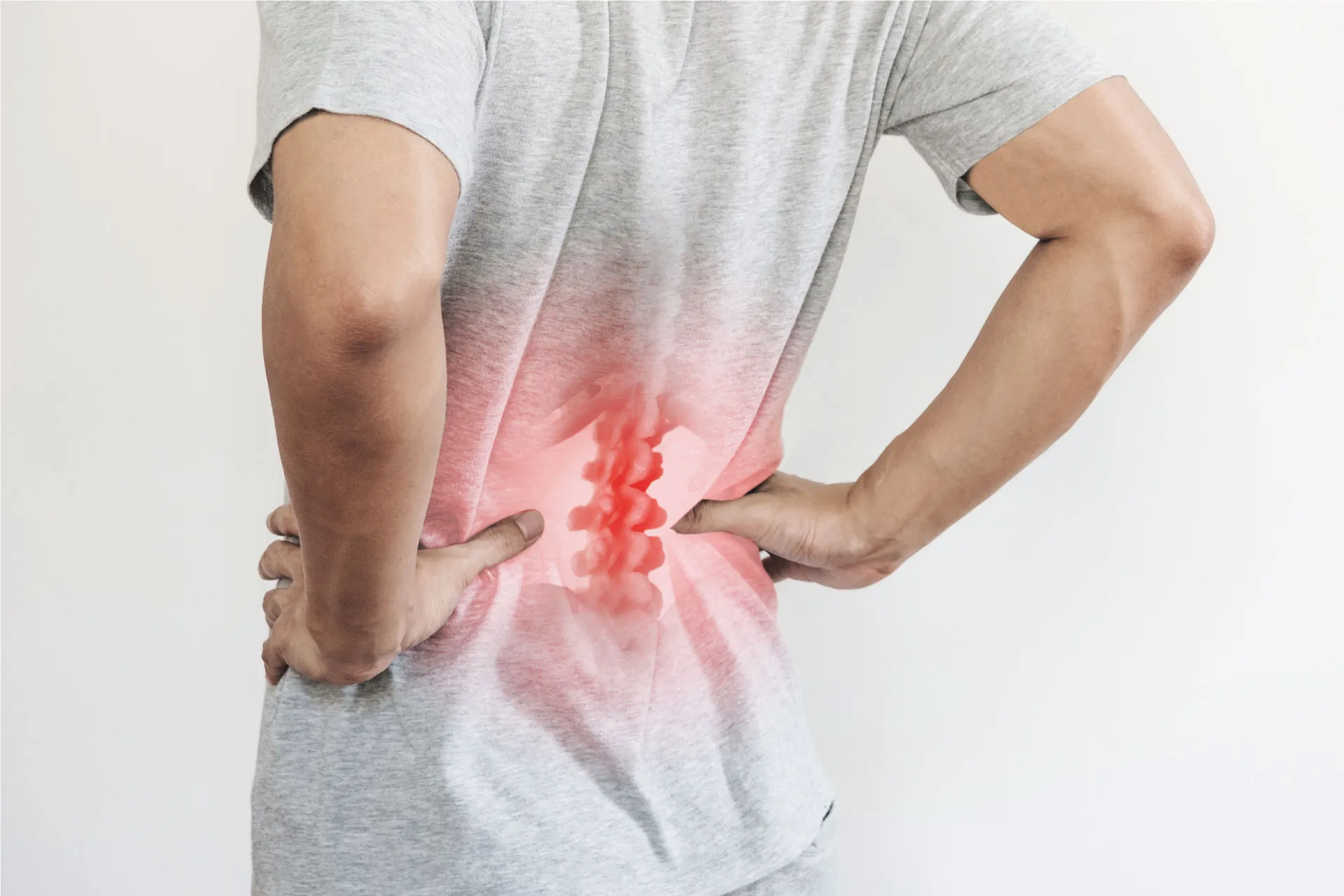Orthopaedic | 5 min read
Rickets Disease: Symptoms, Diagnose and Treatment
Medically reviewed by
Table of Content
Synopsis
Rickets disease is a skeletal disorder with symptoms like muscle cramps. Rickets causes include vitamin D or calcium deficiency. Rickets treatment options include nutritional foods and medication.
Key Takeaways
- Rickets disease is a result of calcium and phosphorus deficiency
- Curved spine, delayed growth, bent legs are common rickets symptoms
- Rickets treatments prevent vitamin D deficiency and cure the symptoms
Rickets disease is a skeletal disorder that is often seen in young children. This is why doctors often advise new parents to ensure that children get all the necessary vitamins, including vitamin D. This is because vitamin D or calcium deficiency is among the major rickets causes. According to experts, the number of children affected by rickets disease has risen after the COVID-19 lockdown [1]. This is mainly due to the children being confined to their homes, which prevented them from getting the vitamin D that their bodies needed.
Due to insufficient vitamin D, the child's skeletal development gets affected, which makes them more susceptible to rickets disease. However, you can decrease your child's risk of rickets disease by educating yourself about it. Read on to know the rickets meaning, rickets symptoms, rickets treatment, and more about the rickets disease.
What is Rickets Disease?
Understanding the rickets meaning is important for you to protect your child's health.
It is a condition that affects your child's bone development. Weak, soft, or altered bones due to rickets disease can further cause various growth defects. Insufficient levels of vitamin D are among the major and most common rickets causes in children and infants [2]. Vitamin D deficiency can also result in malabsorption of calcium and phosphorus, which further increases the risk of rickets disease.
Apart from this, other risk factors of rickets disease include the following.
- Insufficient exposure to sunlight
- Lack of calcium-rich food like eggs, milk, fish
- Inherited genes that prevent calcium and phosphorus absorption [3]
Rickets disease can be classified into two types, nutritional rickets, and non-dependent vitamin D rickets. Nutritional rickets is the one that is solely caused by an inadequate amount of vitamin D. On the other hand, non-dependent vitamin D rickets is caused by hereditary or genetic conditions. These conditions affect the ability of the body to absorb vitamin D.
Additional read: Major Vitamin D Supplements
What are the Main Rickets Symptoms?
Rickets disease causes both internal and external symptoms that include skeletal deformity in extreme cases. Rickets symptoms appear when your child's body finds it difficult to absorb calcium and phosphorus in the bones, which is essential for normal development.
Other common rickets symptoms include:
- Softness in bones increases the risk of bone fracture
- Swollen wrists, ankles, and knees
- The short height as per age
- Bone pain
- Cramps in the muscles
- Skull deformities
- Defects in tooth formation
- Curved spine
- Bowed legs
- Random ribcage bumps
- The odd shape of the pelvis
The effect of rickets disease can become severe when it is left undiagnosed and untreated. These ill effects include seizures, scoliosis, and bone cancer in a few cases. Your child would need intensive medical care to cure these conditions. So, it is better for you to consult a doctor as soon as you see the signs to ensure that you get a timely rickets disease diagnosis.

Diagnose Rickets Disease
Doctors are able to diagnose rickets disease when they detect the signs of bone defects. The doctor will physically examine any bone weakness or bone pain by slightly pressing the areas where rickets symptoms are present. The doctor may also prescribe a few tests to accurately diagnose rickets disease. These tests usually include the following:
- X-rays to detect bone deformities such as tooth deformation or curvature in leg bones
- Blood tests that show levels of calcium and phosphorus in the blood
Apart from the above, your child's pediatrician may suggest other tests such as:
- Urine tests
- Hereditary tests
- Bone biopsy, although rarely done
Treatment For Rickets Disease
Rickets treatment options mainly focus on increasing the amount of vitamin D present in your body. This can be done through various options to ensure that there is enough vitamin for proper growth.
Overall, the rickets treatment options may include the following:
- Vitamin D and calcium supplements or injections
- Braces for teeth deformity
- Surgeries to correct bone defects in rare cases
- Addition of vitamin D-rich foods [3] such as fish, eggs, and milk or foods with added Vitamin D such as certain plant-based milk, yogurt, and more
Taking prescribed medicines is important to avoid the side effects of excess vitamin D intake, such as too much calcium in the blood. Your doctor may also suggest taking your child outdoors in the sun more to cure vitamin D deficiency and improve bone health.
Additional read: Healthy Calcium-Rich FoodArmed with this information about rickets disease, you can better protect your child and ensure that their risk of such conditions is minimal. It is best to consult a pediatric orthopedic to keep an eye on your child's bone health. You can get a doctor consultations on Bajaj Finserv Health and consult with the top specialists in just a few minutes. This way, you can get expert guidance and address any and all concerns to ensure your child's growth and development continues without a hitch. You can also explore a range of offers available on this app or website on various lab tests, teleconsultations, and preventive health check-ups. Take this step to ensure your child's nutritional needs are met and keep all health issues at bay!
References
- https://www.ncbi.nlm.nih.gov/pmc/articles/PMC8051520/
- https://www.ncbi.nlm.nih.gov/books/NBK562285/
- https://www.researchgate.net/publication/319208441_Rickets_Expert_System_Diagnoses_and_Treatment
Disclaimer
Please note that this article is solely meant for informational purposes and Bajaj Finserv Health Limited (“BFHL”) does not shoulder any responsibility of the views/advice/information expressed/given by the writer/reviewer/originator. This article should not be considered as a substitute for any medical advice, diagnosis or treatment. Always consult with your trusted physician/qualified healthcare professional to evaluate your medical condition. The above article has been reviewed by a qualified doctor and BFHL is not responsible for any damages for any information or services provided by any third party.





